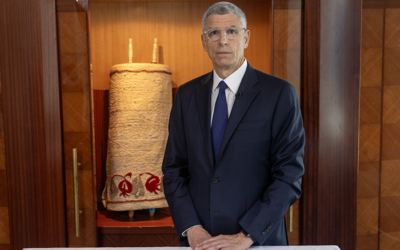By Nina Heller, NFTY CWR
Our culture is filled with many different values. Both secular and religious, these values permeate all aspects of our society and guide us in determining right from wrong. As far as sexual violence prevention is concerned, this culture dictates how we think about and talk about gender-based violence. So NFTY, how can we change the conversation to better reflect our shared values?
-
- Words matter. The language we use to talk about sexual violence prevention can have a large impact. Without even knowing it, the words we use can help us acknowledge our relationship to this issue and make real change surrounding it. Think about what connotation the word “victim” evokes. Often times, people choose to use the word “survivor” to communicate resilience as well as avoid the connotations of trauma that the word “victim” might allow. According to RAINN, the word “victim” is used when referring to someone who has recently been affected by sexual violence; when discussing a particular crime; or when referring to aspects of the criminal justice system.” Conversely, the word “survivor” is used “To refer to someone who has gone through the recovery process, or when discussing the short- or long-term effects of sexual violence.
- Hold our institutions accountable. Sexual violence is never the survivor’s fault. By making sure our institutions, such as schools and universities, uphold and commit to addressing sexual violence, we end the culture of victim blaming that our society has forced on us. Additionally, by asking our institutions to properly handle instances of sexual violence, we can make sure that our society places a greater emphasis on teaching perpetrators not to rape, rather than telling victims not to get raped. Think about the ways that the communities you are apart of — school, temple, clubs, etc. — can better address and prevent sexual violence. How can you be a part of changing that narrative and challenging our institutions to do better?
- Take stock of your own personal behaviors and actions. While the majority of men will never commit an act of sexual violence, the fact remains that the vast majority of acts of sexual violence on college campuses are committed by men. This falls into the hands of our peers — our friends, our “bros,” and our “dudes.” Sexual violence is not just a women’s issue, but also a men’s issue as well. Men have the power to end sexual violence by making the choice not to be perpetrators, and by doing this, can help create a culture that emphasizes mutual accountability.
- What is our metaphor? In his TED Talk, educator Al Vernacchio asks us to look at how we talk about sex. Vernacchio presents us with the metaphor of baseball. Vernacchio argues that the metaphor of baseball frames sex as a competition. Instead, he suggests that we use a different metaphor: pizza. Vernacchio’s example of using pizza as a metaphor provides us with examples of how our dialogue can shift in order to create a world where people can think about how their words and actions affect each other in positive ways.
By changing the conversation, we teach our peers and ourselves that sexual violence is never okay.
To learn more and find resources about sexual violence prevention, visit NFTY.org/SVP. For more data and definitions, visit RAINN.org





